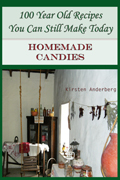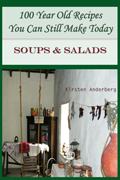Bikes for the Poor
Written by Kirsten Anderberg (www.kirstenanderberg.com) - Dec. 18, 2004
Someone just gave me a bike. It was really amazing riding a bike, after not riding one in a long time. I have been doing a lot of walking and riding buses over the last many years, not bike riding. A bike to me is more than a recreational toy, it is something that will increase my quality of life greatly, on a daily basis. The bike will cut down on my travel times considerably. Many people do not realize that not only do you spend extended journeys on buses due to stopping every few blocks for passengers en route, but if bus transfers are involved, that overlay is time consuming as well, both coming and going. Having a bike now means I can ride my bike to the bus stop, eliminating 10 minutes there, then put the bike on the bus bike rack and ride for an hour into Seattle. In the past, I would then have to transfer to one or more buses to get where I was going. Now, I can just unload my bike once in Seattle, and ride to those destinations, taking only one round trip bus ride, versus the previous three roundtrip bus rides. The bike makes going to the library and grocery store easier, as the bike can carry the weight of juice or books, rather than me. It seems many, if not most, middle class garages are filled with one bike per family member, even though the family uses the SUV more than the fleet of bikes. I think we should have *bike drives* for the poor, like we have food or clothing drives.
When I rode a bike yesterday for the first time in many years of walking, the first thing I noticed was how good it felt for my legs to get that kind of circulation as I pedaled. Then I went down a hill for a bit, and I realized I had not experienced that kind of gliding, flying feeling in quite a while, and it brought flashbacks of being a kid on my bike. I turned onto the Burke Gilman trail on my new (used) bike yesterday, which is a wonderful bike/walking path that should be an example for all cities. The Burke Gilman trail cuts across a huge swath of communities around Seattle, linking the city, and surrounding cities, by trail, instead of streets. For instance, I used to have to take the bus to the neighboring city to visit the closest library. Now I can take the Burke Gilman trail to the library on my bike, and never have to ride amongst cars the whole way.
The last time I rode my bike on the Burke Gilman trail I was 18. I remember riding my bike all over Seattle in the summers as a teen. I used to explore the San Fernando Valley in California on my bike as a kid too. I would ride down alleys and dirt roads, find abandoned things, and just take in the nature around me, discovering orange, peach, avocado, pomegranate, lemon, olive, and almond groves.
When my son was 2 years old, I was stuck with no money and a kid who would get cranky if we tried to just stay home. So I would strap him on the back of the bike and ride along the bike path in Santa Cruz, Ca. The path borders the Pacific Ocean in parts, and he would fall asleep to the lull of the waves. But once dead asleep, his huge toddler head would hang off the side of the bike seat, no matter how well he was strapped in, and I would have to walk the bike home. (Of course, the minute we got home, he would wake up and want to go somewhere). When my son got older and began to read Charles Schulz's Peanuts comics, he told me that he could relate to the character "Rerun." Rerun is this kid in the Peanuts comics, who is always in the bike seat on the back of his mom's bike going somewhere. You never see his mom or the front of the bike, just him, riding in the back. He is always freaking out on her speedy bike driving, ducking, fretting as she travels around town with him in tow.
As a low income single mom, I used a bike to get around town when I lived in Santa Cruz, Ca. I'd ride my son to the park, to the library, to the free days at the museums, for bike rides along the ocean…all of that was done without causing pollution, without using oil, without using money as a commodity. I remember thinking how *rich* our lives were, while having no money. Here we were, healthy, riding the bike in the salty sea air, listening to sea lions yelp and the waves crashing, and what could I buy that would be so perfect? But I needed *the bike.*
Bikes cost money. I cannot afford a car, but I could not afford a working bike for a long time either. Yes, you can get peoples' throw away bikes with flat tires, broken gears and nonfunctioning brakes; they are a dime a dozen. But bikes that are in good working condition *as is,* are expensive for the poor. We need to organize *bike fairs* in towns, to get bikes out of middle class people's garages and into the hands of people who will use them as a mode of transportation, not just some occasional recreation. Teens in poor families especially need bikes for extracurricular activities. Bikes are a form of freedom if you do not own a car. Walking is very time consuming. Let's redistribute bike privilege across America now. Let's alert the community to our need for working bikes and to the availability of these bikes to low income people. Let's make poor peoples' lives richer with bikes.
I have heard of a system in Amsterdam where free bikes were left all over town and people just use them at will. I saw a working model of this on Bainbridge Island, Wa. in the late 1990's. The city gathered bikes, painted them bright yellow, and left them in bike racks all over the city. I would get off a ferry from Seattle, and there would be a bike in the racks, a bike someone had just ridden to the ferry dock to take a ferry to Seattle. I would ride it to the library a few blocks from my home, and leave it the racks for the next rider. I would sometimes walk to the store, and then when I went to leave, there would be a yellow bike, so I would ride it to the library. The way it worked was sort of that you are covered one way on a trip. Roundtrip is more like you own the bike. Bikes were all over the island and the community paid for their maintenance. (I always wondered if the City would be sued for an accident on these bikes or if they were labeled with a disclaimer which I cannot remember). Bainbridge is a small middle class homogenous community, thus this worked in that environment. I can only laugh at the idea of implementing such a system in Hollywood, Ca., for example. But the idea of free bikes all over town is advanced city planning, in my opinion. Another angle to this is collecting bikes and lending them out to the community, like books at a library. A group out of New Zealand called the "Green Bike Trust" (http://www.kiwiingenuity.net/greenbikes.htm) collects, recycles, and lends bikes for free.
There are many groups who understand bikes as a political force, on many levels. Bike politics can relate to pollution, traffic congestion, health, oil and war politics, sustainable culture, and more. A leader in the area of bikes and revolution are the groups collectively using the name "Critical Mass" (Critical-mass.org). Critical Mass is basically an action where bike riders band together the last Friday of every month, and take over streets usually earmarked predominantly for cars and motor vehicles. Sometimes these actions violate laws by blocking traffic, and police hassle critical mass actions often. Some of these folks call themselves "biketivists" and promote bikes as a political agenda. There are critical mass rides going on in Africa, Asia, Australia, Europe, Canada, the United States, in South America, and more. On August 28, 2004, for example, 5,000 riders took to NYC streets in a Critical Mass ride. The Critical-mass.org website is a good resource for critical mass email lists, documentaries, and how to resources, so you can start a Critical Mass movement where you live. The site also offers downloadable bike rights fliers, as well as critical mass fliers. There are several zines, websites and publications that center on bike politics as well, such as CarBusters Magazine (www.carbusters.org). It is important to educate people about the need to lobby legislators for bike paths, bike racks on buses, etc. as these needs are often not vocalized loudly enough.
Hey, do you have a bicycle hidden somewhere that you have not ridden in the last 6 months? Think of giving that bike to someone who would use it *daily* and you can rent or borrow a bike for a day's ride once every 6 months. Do you know a low income single mom without a car? Give her your bike today. Do you know a low income teenager? Give them the bike you rarely use today. A bike can also improve a homeless person's life tremendously. Please be considerate and give a functioning bike lock with the bike to the person. Otherwise, the bike just cost them $10+ again, which they may not have. It would be a shame for the bike to be stolen because the person you gave it to could not afford a lock.
Can you improve someone's quality of life today with the gift of a bike? Imagine how good you will feel seeing a teen in your community ride your bike every day through town, when it sat collecting dust when it was yours! Bikes are yet another middle class privilege that the middle class take for granted. Have *bike drives* and redistribute the wealth, and health, today.
Thank you to Resist.ca for hosting this website!










